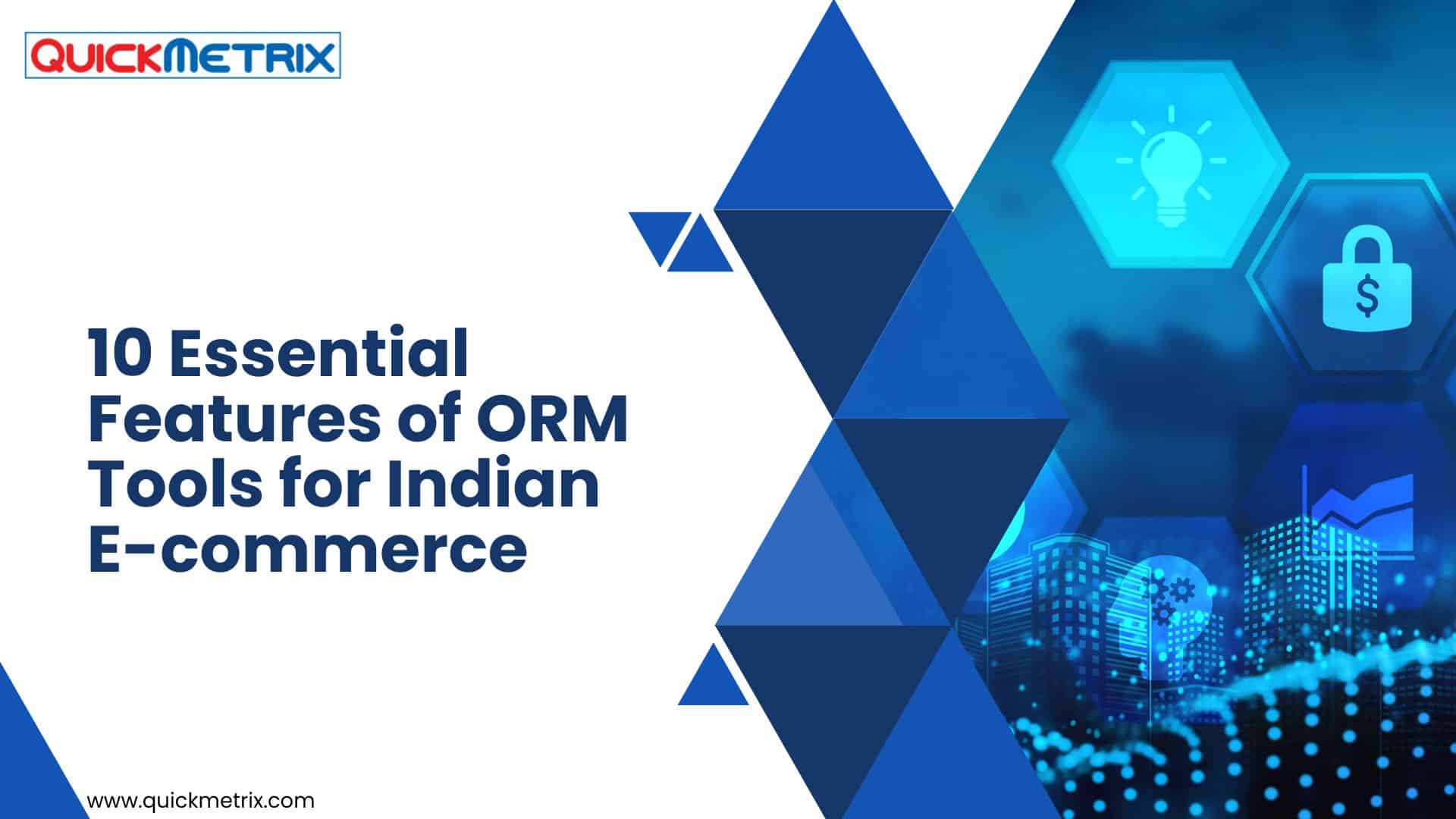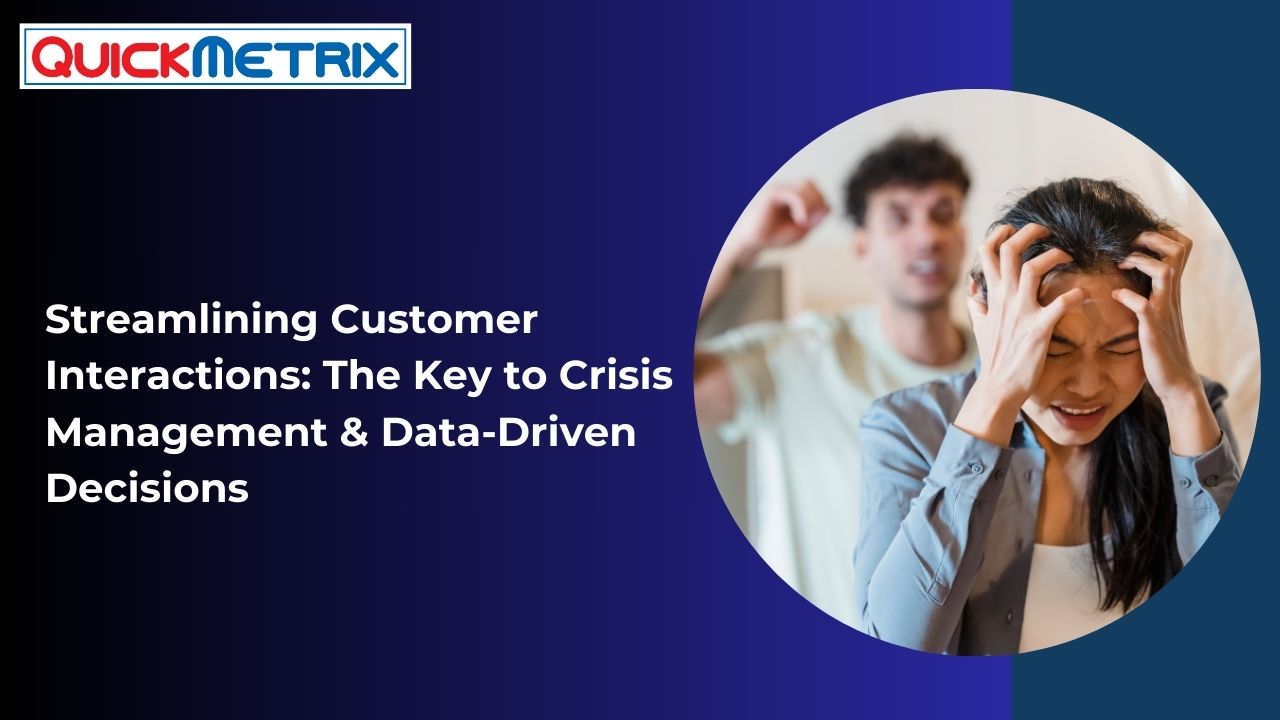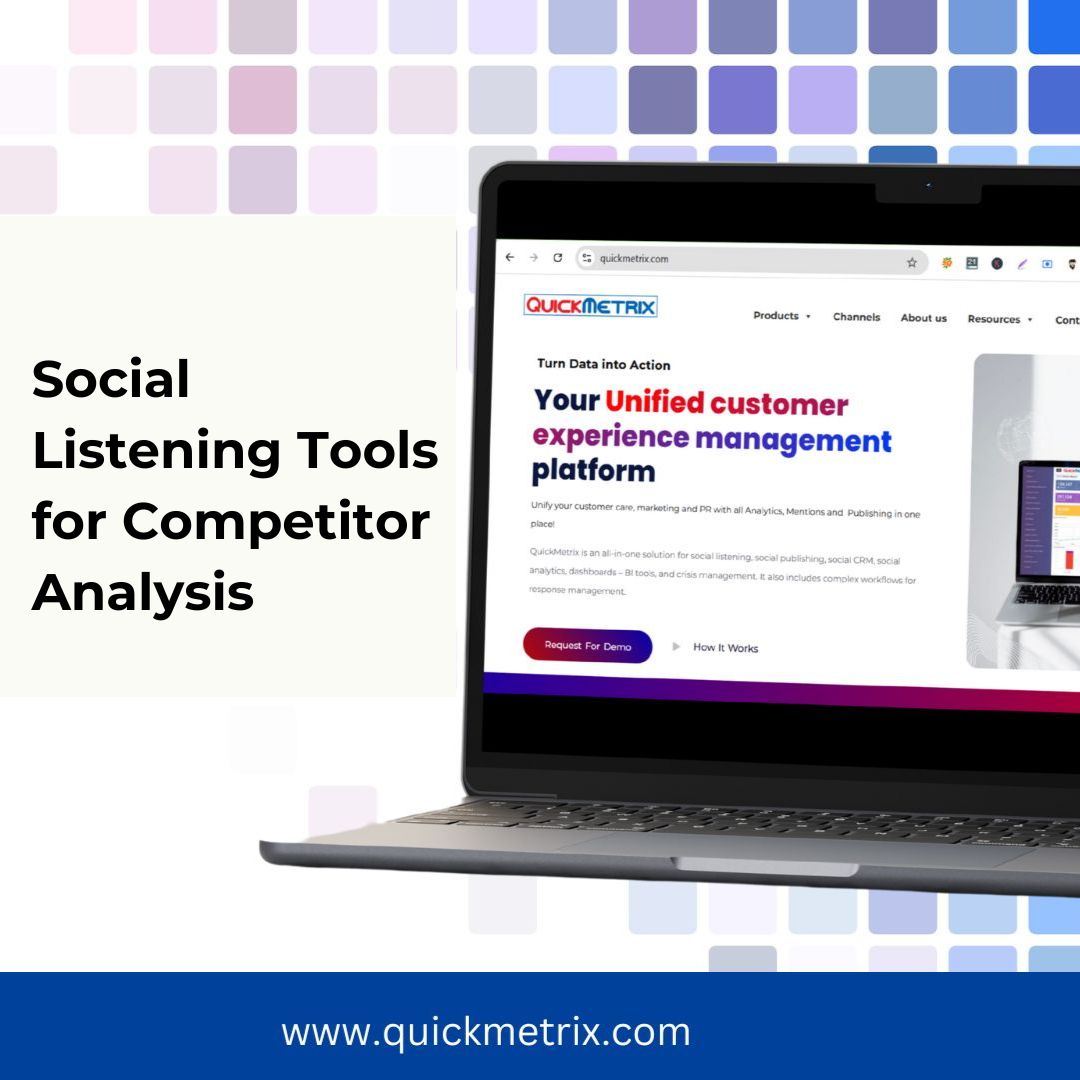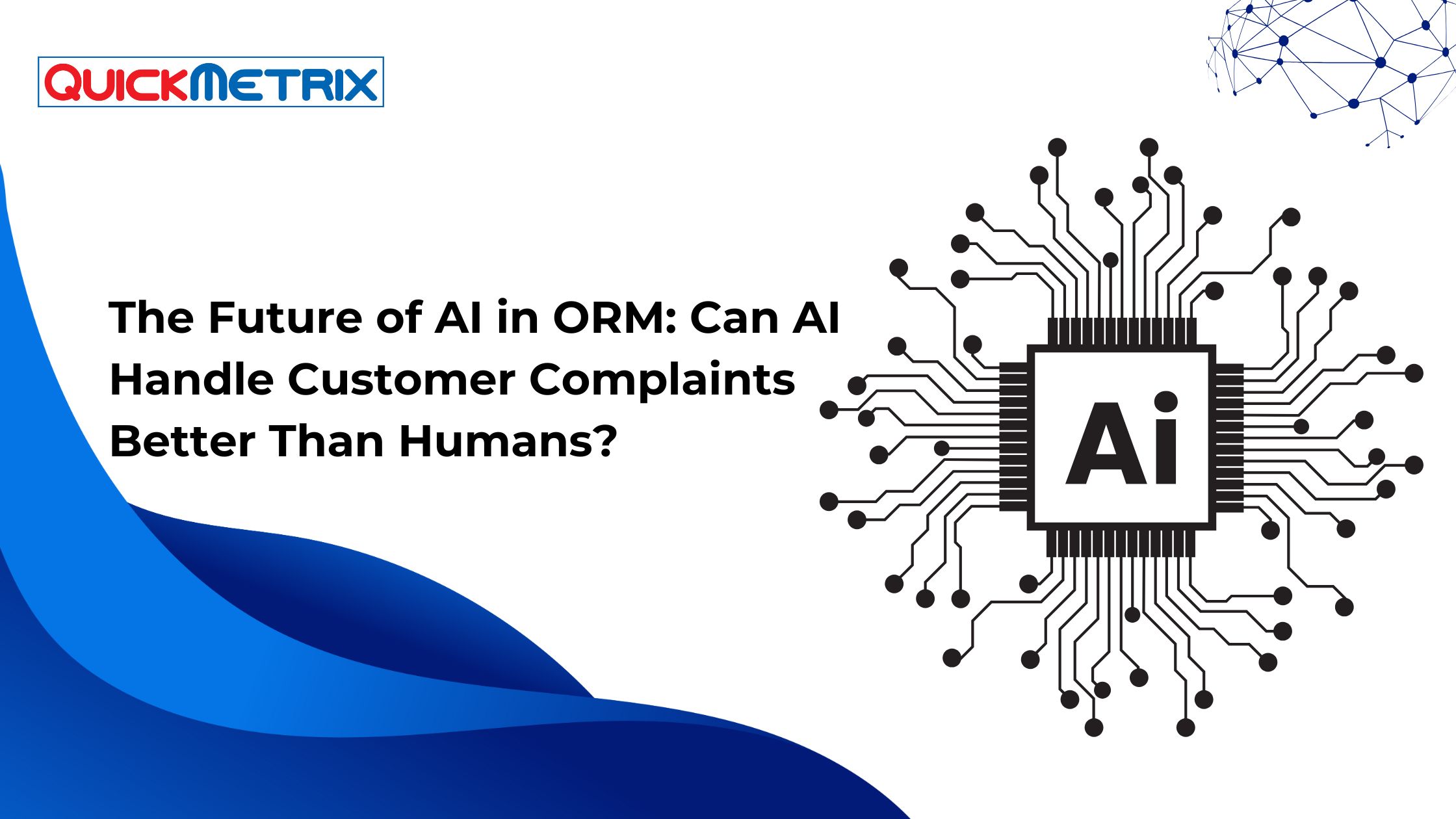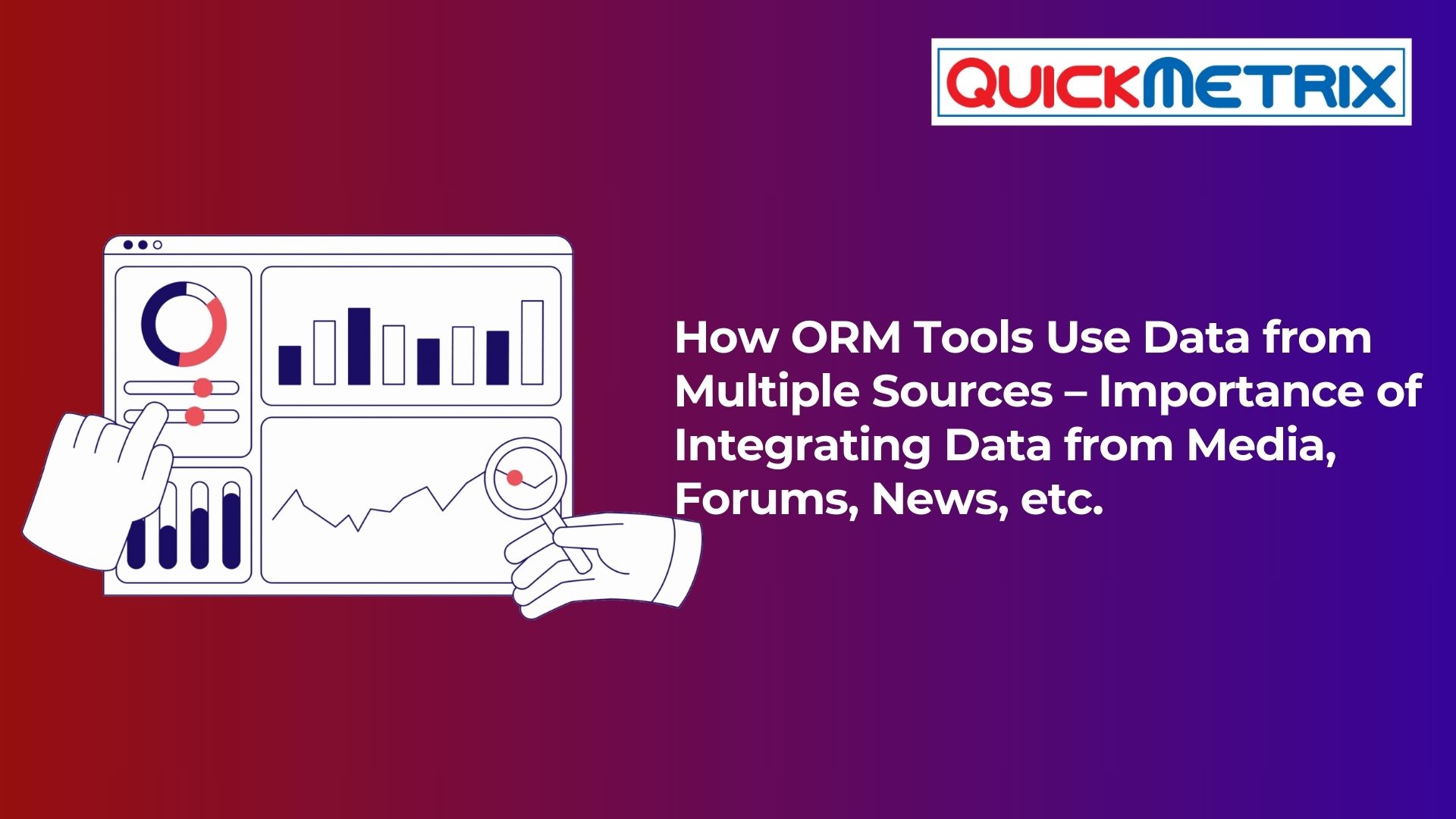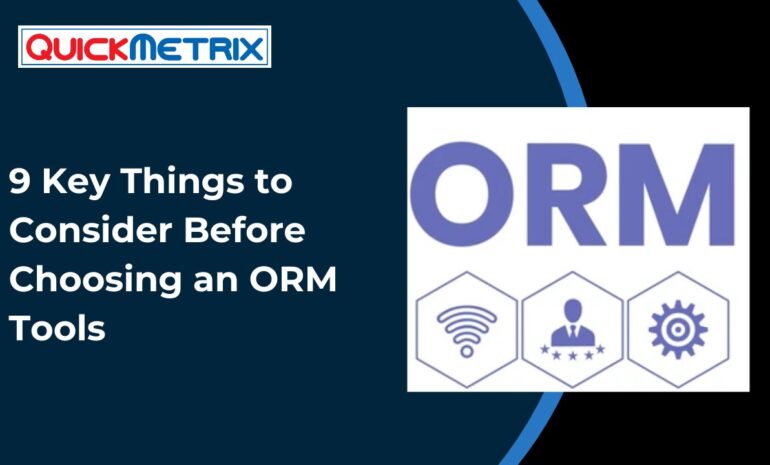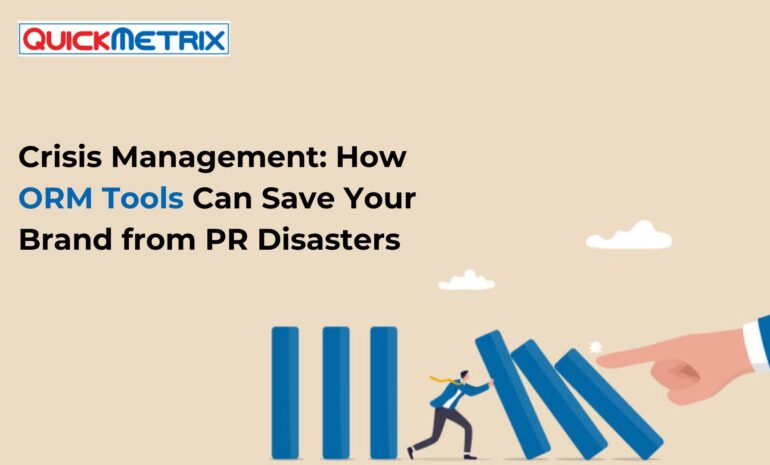Introduction to Online Reputation Management (ORM) Tools
Online Reputation Management (ORM) tools play a crucial role in shaping the of Indian E-commerce businesses in the digital landscape. Let’s delve into the significance of ORM tools, their impact on business success, and the key features are essential for effective online reputation management.
What is Online Reputation Management
Online Reputation Management (ORM) involves monitoring, influencing, and managing the online reputation of a brand. It aims to build a positive image, address negative feedback, and enhance credibility among customers.
Importance of ORM Tools for E-commerce
ORM tools are indispensable for E-commerce businesses as they provide insights into customer sentiment, help in brand monitoring, and enable quick responses to feedback. They are instrumental in building trust and loyalty among online shoppers.
Impact of Online Reputation on Business Success
The online reputation of a business directly impacts its success in the competitive E-commerce market. Positive reviews, strong social media presence, and proactive reputation management can lead to increased sales, customer retention, and brand visibility.
Key Features for Effective ORM Tools in Indian E-commerce
Social Media Monitoring
-
- Tracking Brand Mentions: Keeping tabs on what customers are saying about the brand on various social media platforms.
-
- Monitoring Customer Feedback: Responding to customer queries, complaints, and feedback promptly to maintain a positive image.
-
- Analyzing Competitor’s Social Media Activities: Understanding competitor strategies and identifying opportunities for improvement.
Review Management
-
- Gathering and Responding to Customer Reviews: Encouraging customers to leave reviews and addressing them constructively.
-
- Flagging and Reporting Fake Reviews: Identifying and reporting fraudulent reviews to maintain the credibility of the brand.
-
- Integrating with E-commerce Platforms: Seamless integration with E-commerce platforms for a holistic view of customer feedback.
Sentiment Analysis
-
- Understanding Customer Sentiments: Analyzing customer emotions and perceptions to tailor marketing strategies.
-
- Identifying Trends and Patterns: Recognizing patterns in customer feedback to anticipate future trends.
-
- Improving Customer Service Based on Feedback: Implementing changes in products or services based on customer inputs for enhanced satisfaction.

SEO Integration for Improved Online Visibility
Keyword Monitoring
-
- Tracking Keywords Related to Brand: Monitoring brand-related keywords to understand customer search behavior.
-
- Identifying SEO Opportunities: Identifying keywords with high search volume and low competition for better visibility.
-
- Optimizing Content for Search Engines: Creating SEO-friendly content to improve search engine rankings.
Backlink Analysis
-
- Assessing Backlink Quality: Determining the quality and relevance of backlinks to enhance website authority.
-
- Monitoring Competitor Backlinks: Tracking competitor backlinks to identify potential link-building opportunities.
-
- Building and Managing Backlinks: Strategically acquiring backlinks from reputable sources to boost SEO efforts.
SERP Tracking
-
- Monitoring Search Engine Results: Tracking search engine results page (SERP) positions to gauge SEO performance.
-
- Evaluating Performance Against Competitors: Comparing rankings with competitors to identify strengths and weaknesses.
-
- Making Data-Driven SEO Decisions: Using data insights to make informed decisions for SEO optimization.
Reputation Repair and Crisis Management
Negative Mention Alerts
-
- Notifying Instantly About Negative Feedback: Promptly notifying about negative mentions to address issues in a timely manner.
-
- Taking Quick Actions to Address Issues: Implementing corrective measures to mitigate the impact of negative feedback.
-
- Minimizing Reputation Damage: Preventing negative publicity from escalating and affecting brand reputation.
Crisis Response Plan
-
- Developing a Crisis Communication Strategy: Creating a plan to handle reputation crises effectively and transparently.
-
- Training Team Members for Crisis Situations: Equipping team members with the necessary skills to manage reputation risks proactively.
-
- Implementing Proactive Measures: Taking preventive actions to minimize the occurrence of reputation-damaging events.
Damage Control Measures
-
- Addressing Negative Publicity: Responding to negative publicity with transparency and accountability.
-
- Rebuilding Trust with Customers: Reassuring customers and rebuilding trust through authentic communication.
-
- Learning from Past Mistakes: Analyzing past reputation crises to avoid similar pitfalls in the future.
Data Analytics and Reporting for Performance Tracking
Performance Metrics Tracking
-
- Monitoring KPIs for Online Reputation: Tracking key performance indicators (KPIs) to measure the effectiveness of ORM efforts.
-
- Assessing Impact of ORM Efforts: Evaluating the impact of ORM strategies on brand reputation and customer perception.
-
- Continuous Improvement Strategies: Implementing data-driven strategies to continuously enhance online reputation.
Customizable Dashboards
-
- Tailoring Reports to Specific Needs: Customizing reports to focus on key aspects of online reputation management.
-
- Visualizing Data for Better Understanding: Using visuals to represent data accurately and facilitate better decision-making.
-
- Sharing Reports with Stakeholders: Sharing insights and reports with stakeholders to align on reputation management goals.
Competitor Analysis
-
- Benchmarking Against Competitors: Comparing performance metrics with competitors to identify areas for improvement.
-
- Identifying Strengths and Weaknesses: Analyzing competitor strategies to leverage strengths and address weaknesses.
-
- Adapting Strategies for Market Positioning: Adapting ORM strategies based on competitor analysis to enhance market positioning.
Conclusion
In conclusion, effective Online Reputation Management tools are crucial for Indian E-commerce businesses to monitor and enhance their online presence. By incorporating key features like social media monitoring, review management, SEO integration, reputation repair, and data analytics, businesses can successfully manage their online reputation and drive growth.
FAQs
-
- How often should businesses monitor their online reputation using ORM tools?
-
- Businesses should monitor their online reputation using ORM tools continuously, with daily checks being ideal. This ensures timely responses to customer feedback, addressing negative reviews, and staying updated with public perception, which is crucial for maintaining a positive online presence.
-
- What are the common challenges faced by Indian E-commerce businesses in managing their online reputation?
-
- Indian e-commerce businesses often face challenges in managing online reputation due to high competition, frequent negative reviews, logistical issues, data security concerns, and maintaining customer trust. Rapid responses to customer feedback and effective use of ORM tools are crucial to address these issues.
-
- How can ORM tools help businesses in building brand credibility among Indian customers?
- ORM tools can enhance brand credibility among Indian customers by monitoring feedback, addressing complaints promptly, showcasing positive reviews, and managing online presence effectively. This builds trust, enhances brand perception, and fosters loyalty.
Top Social Listening Tools in 2025: Why QuickMetrix Deserves Your Attention
In the world of digital marketing, conversations are currency. ...
Read More9-key-things-to-consider-before-choosing-an-best-orm-tool (Online response management tools)
IntroductionIn today's hyper-connected world, a single unresolved tweet or ...
Read MoreStreamlining Customer Interactions: The Key to Crisis Management and Data-Driven Decisions
Streamlining Customer Interactions: The Key to Crisis Management and ...
Read MoreSocial Listening for Financial Services: How Banks & FinTechs Stay Ahead
Introduction to Social Listening in Financial Services Definition ...
Read MoreThe Journey of QuickMetrix: Insights from Surendra Baliga on Building a Successful SaaS Business
The entrepreneurial journey is often filled with challenges, learning ...
Read MoreMastering the Market: How to Use Social Listening Tools for Real-Time Competitor Analysis
1. Introduction to Social Listening Tools1.1 What is Social ...
Read MoreHow to Get the Most Out of Social Listening Tools and Why Businesses Invest in Them
How to Get the Most Out of Social Listening ...
Read MoreListening to the Noise: How to Monitor Conversations That Matter to Your Brand
Understanding the Importance of Monitoring Brand Conversations 1.1 The Role ...
Read MoreThe Future of AI in ORM: Can AI Handle Customer Complaints Better Than Humans?
I. Introduction to Online Response Management (ORM)/ Online reputation ...
Read MoreHow ORM Tools Use Data from Multiple Sources – Importance of Integrating Data from Media, Forums, News, etc.
What is ORM ToolsOnline response Management (ORM) tools are ...
Read MoreTop Features to Look for in an ORM Tool for B2B Companies
Top Features to Look for in an ORM Tool ...
Read More2025 Digital Marketing Predictions: What’s Next for Brands?
2025 Digital Marketing Predictions: What’s Next for Brands?IntroductionDigital marketing ...
Read More15 Social Listening Tools for Your Brand in 2025
Why Social Listening Matters A winning social media strategy starts ...
Read MoreYour Unified Customer Engagement Manager
Online reponse Management. AI Chatbot. Social Listening & Analytics. Social Media Publishing. Command Centre. Crisis Management. Complete Omnichannel Solution. Social CRM. All in one
